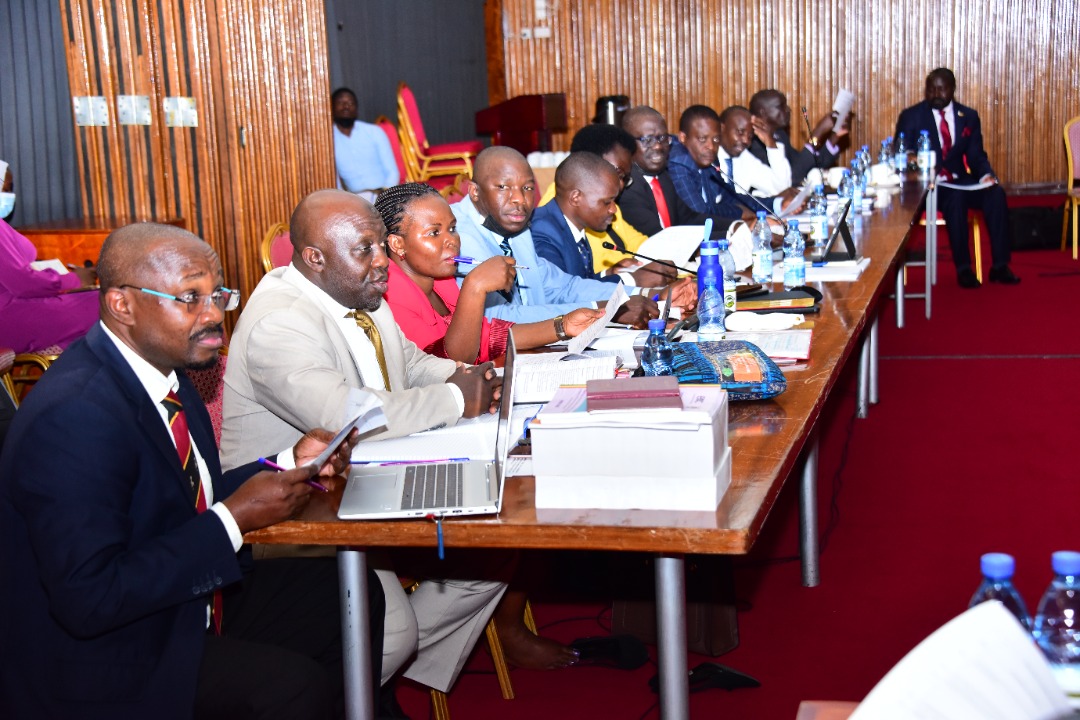Members of Parliament on the Budget Committee have queried the Government’s preparedness to implement the Parish Development Model (PDM).
The MPs think that the apparent strategy to promote increased incomes intended to alleviate communities from poverty, is ‘ill-prepared’ and could go to waste if the project is not adequately funded, streamlined and coordinated to serve its intended purpose.
This was after the Chairperson, Committee on Public Service and Local Government, Hon. Godfrey Onzima on Tuesday, 03 May 2022 presented before the Budget Committee a budgetary shortfall of Shs72.8 billion required for effective coordination and supervision of PDM in FY 2022/23. Onzima was presenting critical unfunded activities for the sectoral agencies for harmonisation and reconsideration.
“We have parishes where parish chiefs will be central in the implementation of PDM, but we have not resourced them to do work. And this is because Parliament did not have time to debate PDM thoroughly before implementation, so the cart is now before the horse. You cannot implement PDM without resources,” Hon. Paul Omara (Otuke County) said.
Out of the required Shs72.8 billion that the Ministry of Local Government requires to coordinate PDM activities, Shs20 billion is for secretariat operations and pillar working groups while Shs52.8 billion is for Local Governments. The ministry also requires an additional Shs26.69 billion as facilitation for parish chiefs.
“PDM should be the only vehicle for purposes of poverty eradication, but they [ministry] are still asking for Shs26 billion for salaries for parish chiefs, who are focal persons for implementation of the PDM. Are we really willing or prepared to implement PDM when we cannot even pay focal persons at the parish?” West Budama North East County MP, Fox Odoi asked.
Sheema Municipality MP, Dickson Kateshumbwa, demanded that the Ministry of Local Government accounts for the first batch of PDM funds amounting to over Shs180 billion meant for the 10,694 parishes across the country.
“What happened to Shs17 million that was budgeted for each parish? How it has been spent? We need accountability. The Ministry of Local Government should open up and give us full accountability on how that money was utilised,” Hon. Kateshumbwa said.
He questioned the need for a secretariat in Kampala to coordinate PDM activities, saying the monies should be directed to the parishes to avoid any financial hemorrhage caused by bloated administrative units.
“This money is supposed to go down to parishes, but indicators already seen show that we are going to have a bloated administrative structure here in Kampala and we are going to spend a lot of money. Why not send this money directly to the ground [parishes]? Why do we need to have a big administrative structure here and before you know it has grown wings, recruited and has become an agency,” Kateshumbwa said.
The Chairperson of the Committee on Budget, Hon. Patrick Isiagi expressed dissatisfaction with how government intends to implement PDM saying, it is unfortunate that up to now, there is no money to facilitate parish chiefs who are the drivers of the strategic programme.
The PDM is the latest multi-sectoral strategy where government plans to use parishes as the epicentre for development by channeling funds to the communities to transform the 39 per cent households out of the subsistence economy into the money economy.
MPs on the Budget Committee were divided on whether the Ministry of Local Government still needs Shs15 billion for the induction of councillors intended to enhance performance and service delivery.
Hon. Isiagi, also the Kachumbala County MP, downplayed the request saying it is not necessary to induct councillors a year after being in office.
However, the Vice Chairperson of the Committee on Public Service, Hon. Christine Apolot, insisted that induction is vital even after one year in office.
“Most of them [councillors] are working without any induction. In some local governments, it is the private sector that supports them. So if we just assume that after one year they will now have understood what to do, then it is not the truth,” Apolot said.










